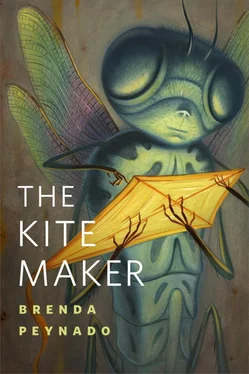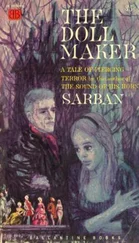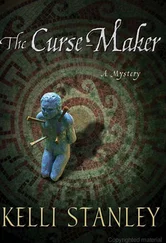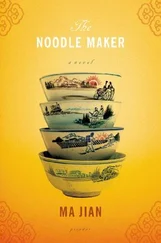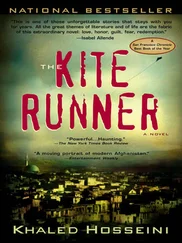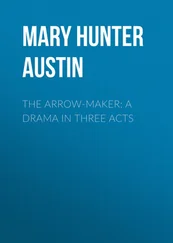They were reenacting the Fallings again, which the Dragonflies called the Arkfall Massacres but we did not. Benon sat atop our old swing set and was directing. It seemed like this time they were trying to get everything exactly right. They even had a giant hologram of one of the Arks cracked like an egg projected behind them in the sandbox. Benon was reading the history out loud.
Thousands died. We didn’t know what they wanted. When they crawled out of their broken ships and picked themselves up out of the crashes, we were sure they were invading, they wanted our children, they wanted more than we could give. We defended our earth. We aimed for their thin legs, their eyes, their delicate fingers. In our city, a ship crashed into the main fiber optic tower. It wiped out most communications, and city officials were too panicked to fix it. Other cities made other mistakes. We couldn’t call each other directly, and so everything we knew about the crash that boomed into the city at dusk, the other arkfalls across the world, was through a rumor mill. Was the National Guard coming? Were they too busy with other arkfalls? Were there too many of the ships to defend against? How many of us could they kill before we reacted? By sundown the next day, we were at the crash site with any weapon we could find.
The neighborhood kids were making the Dragonfly kid crawl out of the hologram. Then they had a line of them stand off with their e-sticks. Benon knew I was watching. He couldn’t help but flick his eyes in my direction. That kid always had the uncanny ability to know when I was looking, unlike Aleo.
Benon directed the neighborhood kids to approach and demand what the Dragonflies wanted. Tell us what you want. Hand over your weapons. Speak in our language. Give us everything. Benon kept pausing the action to ask the boy what he felt, what he would have done if he’d been there.
The moment came I was dreading. The boy, as directed, stood up slowly, testing the thick, heavy atmosphere. He put up his thin arms to shield his eyes from the alien sun. Benon said, Look, he’s going to shoot us. The humans approached, sticks raised. The boy’s wings fluttered, an unconscious reaction, trying to fly away, even in a game, finding this atmosphere a noose to the ground—just like his parents did, then. Had he been like us, he would have yelled for the humans to stop. The e-sticks flew at him, whaled on him, and went for his legs. The e-sticks worked as they were supposed to, dissipating into gas upon contact. The blows weren’t hurting him. Aleo had once flung one at me in a childish rage, and the dissipation had only felt like the strangest whisper. The boy closed his eyes at the feeling of the sticks passing over him, his sensitive body hairs moving through the ghosts of a long-dead massacre. Benon looked at me, it seemed, for approval, his eyes asking, Is this right? Is this how you did it?
I closed the curtains. A spray of police lights flashed past the window. Someone must have called the cops when they heard a Dragonfly boy was in the neighborhood.
I opened the curtains again. Yeshela was cowering on the ground, trying not to move, lest he hit the handles and fists holding the e-sticks, which would not dissipate. The humans were still going, their joy at having their game more lifelike than it had ever been before like a drug. How could they know what they were pretending to be? For them, it was just a story. They never got to the point of horror, the point where we were sorry, when the tide turned, after we wanted them to surrender in the human way, arms up, after we wanted them to fight back to absolve us, after we realized they could not be pushed to fight back, when we began to carry them into the hospitals and the morgue, the doctors trying as best as they could to understand our differences, how to get under their armor, how to splint antennae together, where the vital organs were.
I burst through the screen door. Stop, I yelled.
Mom, it’s a game, Aleo said.
A game, I scoffed. Do you know where I saw your friend, that nice girl you brought over once?
Aleo shrugged. I hadn’t told him.
The cop car parked across the street.
I’m taking you home, I said to the Dragonfly boy.
I loaded Aleo and Benon and the Dragonfly into the car. The boy directed me to a side of town I’d avoided since the city had changed. The three were silent the whole way. The streets changed from suburbs and people walking their dogs after work to cheap construction warehouses in a maze of driveways, deserted. In our city, they had been installed in old complexes of customer fulfillment warehouses. In other cities, they had been pushed into condemned and rotten buildings at the center. In others they were given cloth FEMA tents. In others they were given nothing and wandered from public park to public park.
The warehouse the boy pointed me to was almost as big as one of their own ships. A cluster of them gathered around the industrial complex. At the gates of the warehouse, I parked, pushed my boys out. You’re going to apologize to his mother, I said. Benon hung his head.
History makes no apologies, Aleo said, repeating something he’d heard in a bad hologram, winking at Benon.
The Dragonfly boy did not say, Please don’t come, please do not meet my mother, please do not tell them what you did. Instead, he said, The warehouse is not a place you’ll like. My mother will not like this. We are far in the back.
Which did not deter me in the least.
A smaller door had been cut into the giant loading dock door. Inside, the old product shelving stacks had been repurposed into bunks, layer upon layer of bed spaces where as many as four or five of them slept at a time. Whole families of Dragonflies curled into each other’s bodies. We stepped over standing water on the concrete floors, the smell of mold, flies swarming in clouds. There were dragonfly feeders hung up on the long scaffolding—I mean actual dragonflies, the tiny earth kind, which the aliens hatched from eggs and studied. There was no electricity, no running water I could see. Just rows and rows of bunks, each bunk bed like a tiny home, some decorated with my own kites and wind catchers, wind chimes, feathers, mechanical fans.
When we reached the bunk the boy said was his, his mother climbed down, buzzing. She didn’t announce her name because it was her turf, not mine, but I didn’t give her my name either. I pushed my boys in front of me.
I’m sorry, they chimed in unison.
For what? asked the mother.
They—I said. We—
He wasn’t hurt, I finally said.
I don’t understand, she said. She chattered to her son in their own language, the hums and silences, and he sullenly responded, his legs curling and making him sink in stature.
I wanted to run back the way we came, past rows and rows of these broken families, but I made the three of us stand there in penance.
The mother turned her head back to us. She said, I think forgiveness means different things in our language. We do not ask for it.
We were silent, rebuked, our heads hung.
I’m sorry we make you sleep here, Aleo said. It’s so horrible.
For a moment I was proud. I would have pointed out every failure in the warehouses so they would learn how much we had.
Then the mother said, It’s our home. She turned away from me, bundled her child’s legs up and lifted him, laboring slowly up the ladder in the heavy atmosphere.
* * *
That night, I put my sons to bed for the first time in years, checking on them in the bedroom they shared before they turned out the lights.
Benon was still chattering about his history report, how he could use what he’d learned.
Please, I said, don’t do that again.
Aleo rolled his eyes, turned over. Benon gave a large sigh. I was afraid for them, my kids, for what they would discover about themselves, for what they wanted to be but would soon discover they couldn’t. I tried to hold them both, one arm in each bed. Aleo shrugged me away, Benon stayed rigid.
Читать дальше
